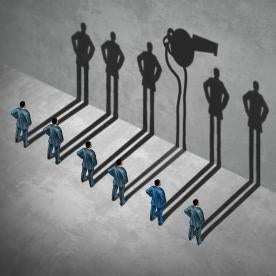Most individuals, regardless of citizenship, may be “eligible” whistleblowers if they voluntarily provide the SEC with original information about a possible violation of the federal securities laws that has occurred, is ongoing, or is about to occur. The information provided must lead to a successful SEC action that results in monetary sanctions exceeding $1 million. One or more people can act as a whistleblower, but companies or organizations cannot qualify as whistleblowers. Furthermore, individuals are not required to be employees of a company to submit information about that company.
Different eligibility rules apply to:
-
officers, directors, trustees, or partners of an entity, if another person informed them of allegations of misconduct, or if they learned the information in connection with the entity’s processes for identifying, reporting, and addressing possible violations of law;
-
employees whose principal duties involve compliance or internal-audit responsibilities, or those employed by, or otherwise associated with, a firm retained to perform compliance or internal-audit functions for an entity;
-
those employed by, or otherwise associated with, a firm retained to conduct an inquiry or investigation into possible violations of law; and
-
employees of, and other persons associated with, a public accounting firm, if they obtained the information through the performance of an engagement required of an independent public accountant under the federal securities laws, and that information related to a violation by the engagement client or the client’s directors, officers, or other employees.
Any of those individuals may be eligible for an SEC whistleblower award if:
-
his or her disclosure is necessary to prevent conduct that is likely to cause substantial injury to the financial interest or property of the entity or investors;
-
the entity is engaging in conduct that will impede an investigation of the misconduct; or
-
at least 120 days have elapsed since either:
-
the whistleblower provided the information to the entity’s audit committee, chief legal officer, or chief compliance officer (or their equivalents), or to his or her supervisor; or
-
the whistleblower received the information, if he or she received it under circumstances indicating that the entity’s audit committee, chief legal officer, or chief compliance officer (or their equivalents), or the whistleblower’s supervisor was already aware of the information
-



 i
i


